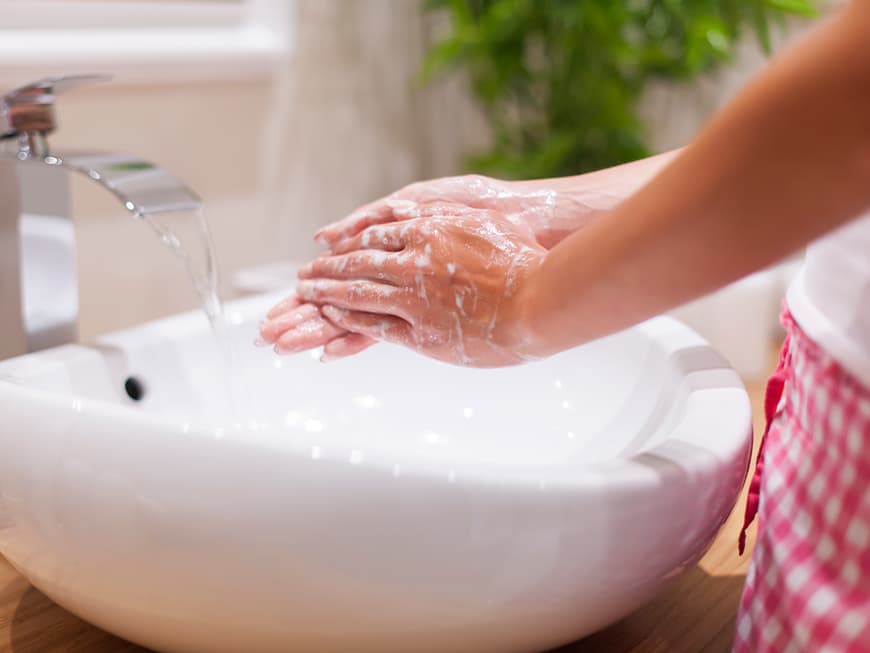
We pass the germs on in this way and infect ourselves by leaving them behind on the mucous membrane of the eye, for example, when we rub it briefly. And they are already in the body, spreading ... What can you do wrong when washing your hands?
Here are the five most common mistakes:
1. washing too briefly. Just running a little water over your hands is not enough. The majority of viruses stick to the skin. Your hands may feel clean, but they are not.
2. not using soap or not using enough soap. Do not skimp when lathering your hands. The palms and fingers should be completely soaped.
3 . the soap also needs a little time to work in. So don't rinse everything off under the tap straight away. It is better to rub your hands thoroughly in the soap lather again, then they are largely germ-free. Cold water also works if necessary. However, the warmer the water, the easier it is to remove infectious dirt from the skin.
4. don't forget the spaces between your fingers. Viruses have a good chance of surviving here. This is because these areas often only get wet when washing, but not clean. If you want to do it right, you should thoroughly soap every finger from all sides, not forgetting the fingernails. Only then is there no longer any risk of infection. Wash thoroughly several times a day.
5. washing too infrequently. Once a day is not enough. Tests have shown that washing your hands thoroughly three times a day significantly reduces the risk of infection.
Tip: No chance for germs
If you don't have the opportunity to wash your hands in between, you should avoid touching mucous membranes - i.e. don't touch your mouth with your fingers or rub your eyes. Then germs have little chance of penetrating. If everyone around you is sniffling and coughing, it may also be worth using disinfectant. A bottle of this type can be easily stored anywhere and is therefore also a good germ killer when you are out and about. Spray your hands briefly from all sides and leave to work for half a minute. This is almost guaranteed to destroy all pathogens on your hands - including bacteria and fungi.






